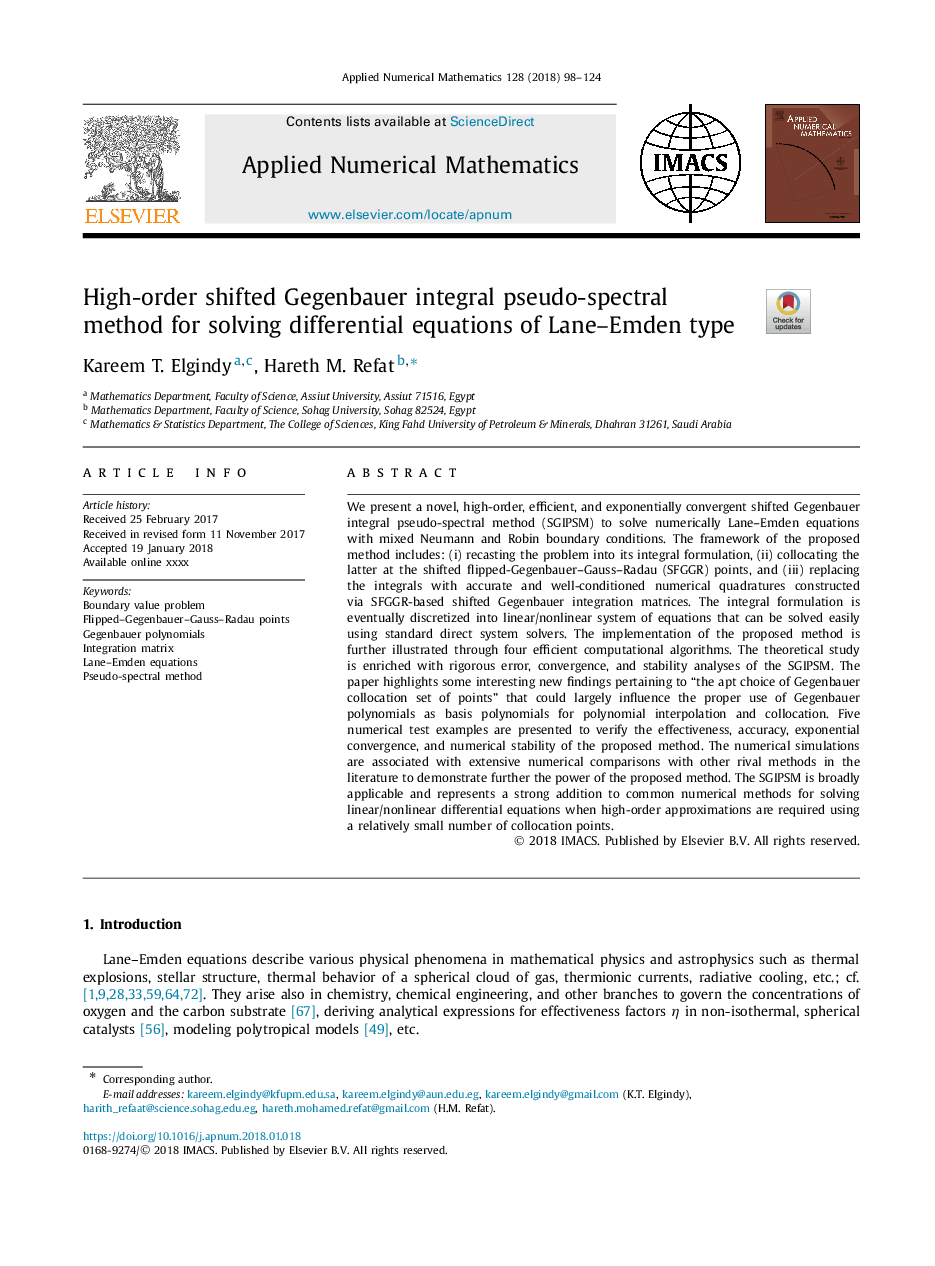| Article ID | Journal | Published Year | Pages | File Type |
|---|---|---|---|---|
| 8902632 | Applied Numerical Mathematics | 2018 | 27 Pages |
Abstract
We present a novel, high-order, efficient, and exponentially convergent shifted Gegenbauer integral pseudo-spectral method (SGIPSM) to solve numerically Lane-Emden equations with mixed Neumann and Robin boundary conditions. The framework of the proposed method includes: (i) recasting the problem into its integral formulation, (ii) collocating the latter at the shifted flipped-Gegenbauer-Gauss-Radau (SFGGR) points, and (iii) replacing the integrals with accurate and well-conditioned numerical quadratures constructed via SFGGR-based shifted Gegenbauer integration matrices. The integral formulation is eventually discretized into linear/nonlinear system of equations that can be solved easily using standard direct system solvers. The implementation of the proposed method is further illustrated through four efficient computational algorithms. The theoretical study is enriched with rigorous error, convergence, and stability analyses of the SGIPSM. The paper highlights some interesting new findings pertaining to “the apt choice of Gegenbauer collocation set of points” that could largely influence the proper use of Gegenbauer polynomials as basis polynomials for polynomial interpolation and collocation. Five numerical test examples are presented to verify the effectiveness, accuracy, exponential convergence, and numerical stability of the proposed method. The numerical simulations are associated with extensive numerical comparisons with other rival methods in the literature to demonstrate further the power of the proposed method. The SGIPSM is broadly applicable and represents a strong addition to common numerical methods for solving linear/nonlinear differential equations when high-order approximations are required using a relatively small number of collocation points.
Related Topics
Physical Sciences and Engineering
Mathematics
Computational Mathematics
Authors
Kareem T. Elgindy, Hareth M. Refat,
